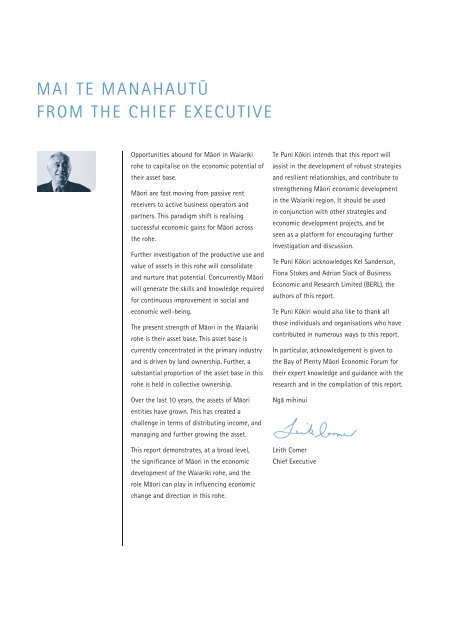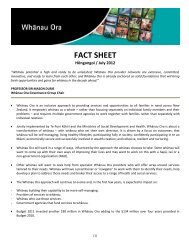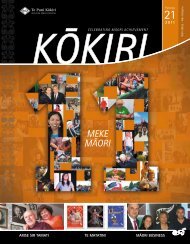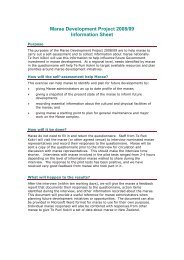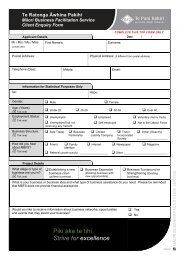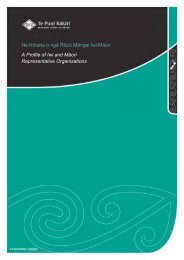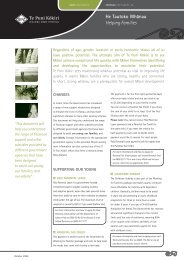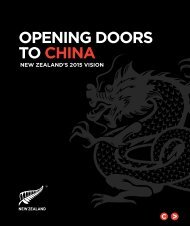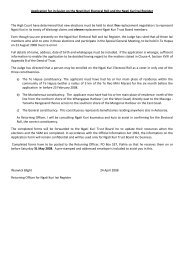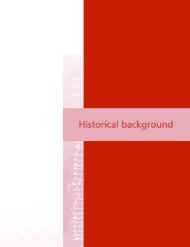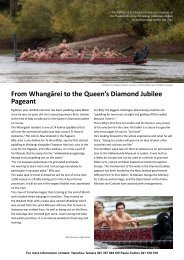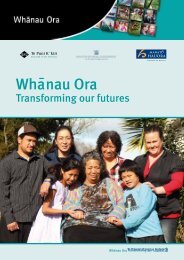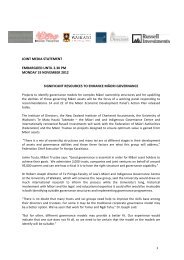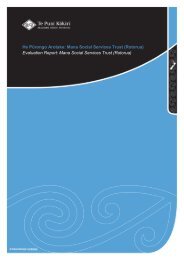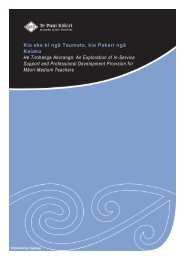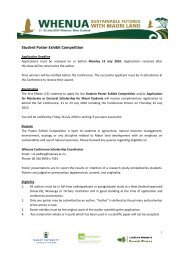Full Document: PDF 949KB - Te Puni Kokiri
Full Document: PDF 949KB - Te Puni Kokiri
Full Document: PDF 949KB - Te Puni Kokiri
Create successful ePaper yourself
Turn your PDF publications into a flip-book with our unique Google optimized e-Paper software.
MAI TE MANAHAUTÜ<br />
FROM THE CHIEF EXECUTIVE<br />
Opportunities abound for Mäori in Waiariki<br />
rohe to capitalise on the economic potential of<br />
their asset base.<br />
Mäori are fast moving from passive rent<br />
receivers to active business operators and<br />
partners. This paradigm shift is realising<br />
successful economic gains for Mäori across<br />
the rohe.<br />
Further investigation of the productive use and<br />
value of assets in this rohe will consolidate<br />
and nurture that potential. Concurrently Mäori<br />
will generate the skills and knowledge required<br />
for continuous improvement in social and<br />
economic well-being.<br />
The present strength of Mäori in the Waiariki<br />
rohe is their asset base. This asset base is<br />
currently concentrated in the primary industry<br />
and is driven by land ownership. Further, a<br />
substantial proportion of the asset base in this<br />
rohe is held in collective ownership.<br />
Over the last 10 years, the assets of Mäori<br />
entities have grown. This has created a<br />
challenge in terms of distributing income, and<br />
managing and further growing the asset.<br />
This report demonstrates, at a broad level,<br />
the significance of Mäori in the economic<br />
development of the Waiariki rohe, and the<br />
role Mäori can play in influencing economic<br />
change and direction in this rohe.<br />
<strong>Te</strong> <strong>Puni</strong> Kökiri intends that this report will<br />
assist in the development of robust strategies<br />
and resilient relationships, and contribute to<br />
strengthening Mäori economic development<br />
in the Waiariki region. It should be used<br />
in conjunction with other strategies and<br />
economic development projects, and be<br />
seen as a platform for encouraging further<br />
investigation and discussion.<br />
<strong>Te</strong> <strong>Puni</strong> Kökiri acknowledges Kel Sanderson,<br />
Fiona Stokes and Adrian Slack of Business<br />
Economic and Research Limited (BERL), the<br />
authors of this report.<br />
<strong>Te</strong> <strong>Puni</strong> Kökiri would also like to thank all<br />
those individuals and organisations who have<br />
contributed in numerous ways to this report.<br />
In particular, acknowledgement is given to<br />
the Bay of Plenty Mäori Economic Forum for<br />
their expert knowledge and guidance with the<br />
research and in the compilation of this report.<br />
Ngä mihinui<br />
Leith Comer<br />
Chief Executive<br />
1


